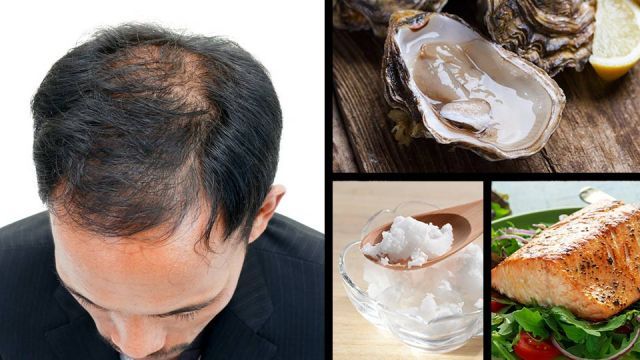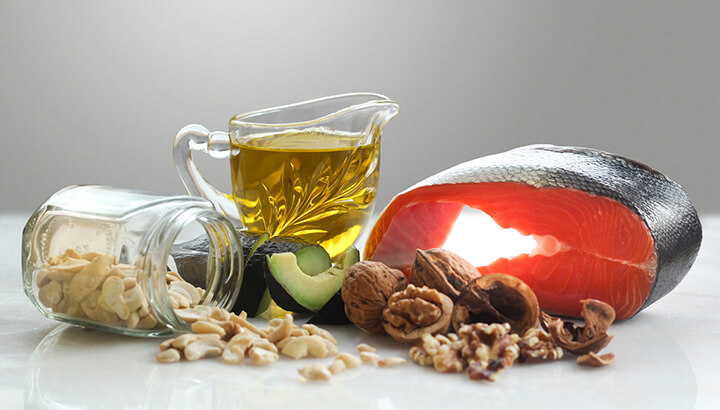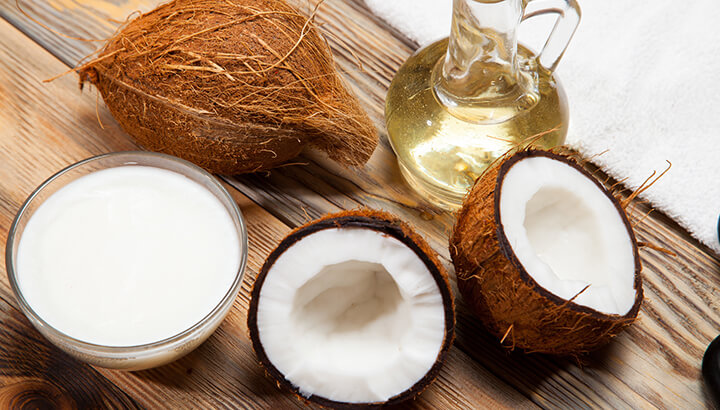
It’s time to stop kidding yourself: your hair is thinning. There’s really only so many times you can look in the mirror and willfully ignore that rapidly receding hairline.
By the age of 35, statistics indicate that two out of three average American men will have some form of hair loss — most likely male pattern baldness. By age 50, a whopping 85 percent of men have hair that’s got somewhere else it needs to be. The verdict? You’re not alone.
But considering just how common male pattern baldness is, it’s amazing how defenseless you can feel in the face of it. Your only options seem to be either making a considerable investment in questionable, sometimes toxic, over-the-counter hair loss treatments, or simply to carry on pretending that nothing is wrong up there.
After all, it’s genetic, right? Surely it’s out of your hands.
Well actually, your situation isn’t as hopeless as you might think. Sure, genetics plays a role, but here’s something your doctor probably won’t tell you about: nutrition! Yup, shock horror — what you eat can very much affect both your internal and external health… including the hair on your head.
So before you commit to a lifetime of Propecia, consider taking a stroll through your supermarket instead. Investing just a few dollars here and there in some of these natural ingredients may just give your ailing hairline the boost it’s been needing for years.
1. Protein-rich foods
Ever wonder what your hair is made of? That’s easy: protein! Well, protein fibers, to be exact. So it should come as no surprise to learn that you need to eat plenty of protein to ensure your very own hair proteins are in optimum condition.
So what kinds of protein are we talking here? My personal favorites are “clean” meats and dairy products — those that don’t contain any antibiotics or hormones, are sourced from wild, pastured or grass-fed animals, and which are preferably organic. Things like grass-fed beef, free-range organic chicken, wild-caught cold water fish (e.g., salmon, sardines, mackerel, etc.), and whey protein from grass-fed cows. These proteins provide a much broader spectrum of nutrients, allowing our digestive system to more efficiently process the protein compounds and send them where they’re needed most.
Hint: your hair is one of those places!
2. Omega-3 fatty acids

If, as part of your quest to ingest more protein, you’ve been knocking back a fair amount of wild-caught salmon, you’re ticking yet another pro-hair box: omega-3s! Salmon, along with other cold water fish, flaxseeds and walnuts all contain high concentrations of omega-3 fatty acids. These compounds are highly anti-inflammatory and known to nourish hair follicles and stimulate new growth.
A 2015 study measured the effect of omega-3 and omega-6 supplementation on the hair of 120 healthy females over the course of 6 months. After six months of supplementation, close to 90 percent of the women reported an overall reduction in hair loss, with similarly positive results for hair diameter and hair density. While the study only considered the effect of omega-3 supplementation in women, omega-3 is not gender-specific, so it’s safe to assume that these results very much apply to balding men as well.
If you really want to step up your omega-3 consumption, consider getting your hands on a high-quality supplement like fermented cod liver oil or wild-caught fish oil.
3. Zinc-rich foods
Time and again, research seems to find that low serum zinc levels are associated with hair loss in both men and women. And because much of the Western world is deficient in zinc, those high hair-loss statistics make a lot of sense.
A 2016 study published in the International Journal of Dermatology found that patients with alopecia areata, one of the most common forms of hair loss, had significantly lower serum zinc levels than those who showed no signs of hair loss. What’s more, the longer the hair loss duration, the lower the zinc levels.
This means that getting your hands on some seriously zinc-rich foods might be just the ticket for reversing your receding hairline. Oysters are hands down the greatest natural source of zinc, but there’s only so many oysters you can shuck in a day… and they’re not cheap either! Other high sources of zinc include walnuts, spinach, pastured eggs, sunflower seeds and chickpeas.
In my opinion, supplementing with zinc usually isn’t a good idea, as it’s very easy to get too much in supplement form — and that can present it’s own health problems. Keep it simple, people!
4. Healthy fats

Amongst the Alternative Daily community at least, it’s widely accepted that healthy fats can go a long way towards nourishing both the body and mind. In particular, oils like coconut oil and olive oil provide body-supporting compounds like medium-chain triglycerides and vitamin E, both of which keep the skin supple and hair looking lush and hydrated.
With this knowledge firmly in hand, it’s no great surprise that scientists have shown strong links between pumpkin seed oil and prevention of male baldness. A 2014 study found that men with mild to moderate androgenic alopecia (male pattern baldness) who supplemented with 400 milligrams of pumpkin seed oil for 24 weeks had greater scalp hair thickness and greater scalp hair count than the control group. It was thought that compounds in the oil directly blocked the action of 5-alpha reductase, a compound commonly associated with androgenic alopecia.
5. Eating a diverse and wholesome diet
It’s fair to say that going into every single food or natural compound that shows promise for halting the advance of male baldness is a little beyond the scope of this article. But when you incorporate the above foods into a diet that’s already loaded with organic, fresh produce, clean meats and animal products, and loads of healthy fats, you’re guaranteed to give your hair a helping hand. Be sure to pursue a lifestyle that’s low in stress and high in movement and fun activities, and your hair should be well on the road to recovery. Good luck!
— Liivi Hess

